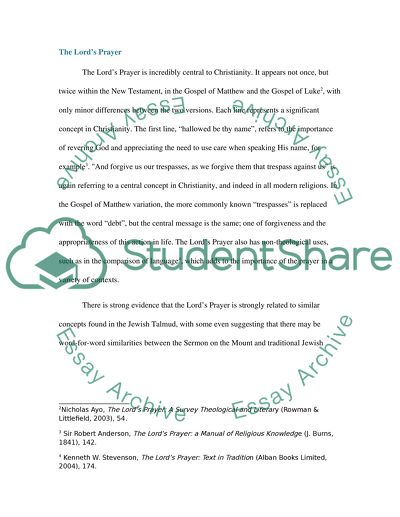Cite this document
(“The relevance of the Lord's Prayer to Modern America: An Historical Research Paper”, n.d.)
Retrieved from https://studentshare.org/religion-and-theology/1402028-gregory-of-nyssa-on-the-lord-s-prayer
Retrieved from https://studentshare.org/religion-and-theology/1402028-gregory-of-nyssa-on-the-lord-s-prayer
(The Relevance of the Lord'S Prayer to Modern America: An Historical Research Paper)
https://studentshare.org/religion-and-theology/1402028-gregory-of-nyssa-on-the-lord-s-prayer.
https://studentshare.org/religion-and-theology/1402028-gregory-of-nyssa-on-the-lord-s-prayer.
“The Relevance of the Lord'S Prayer to Modern America: An Historical Research Paper”, n.d. https://studentshare.org/religion-and-theology/1402028-gregory-of-nyssa-on-the-lord-s-prayer.


